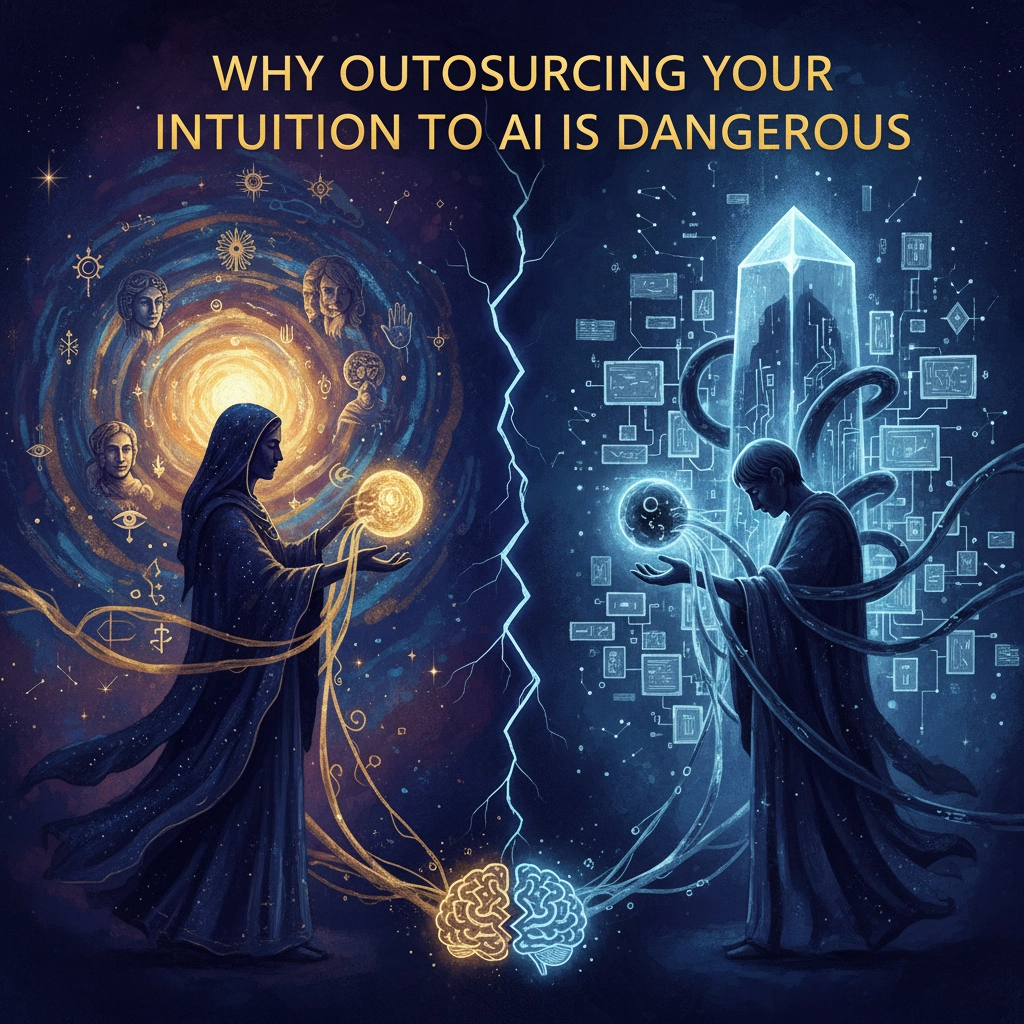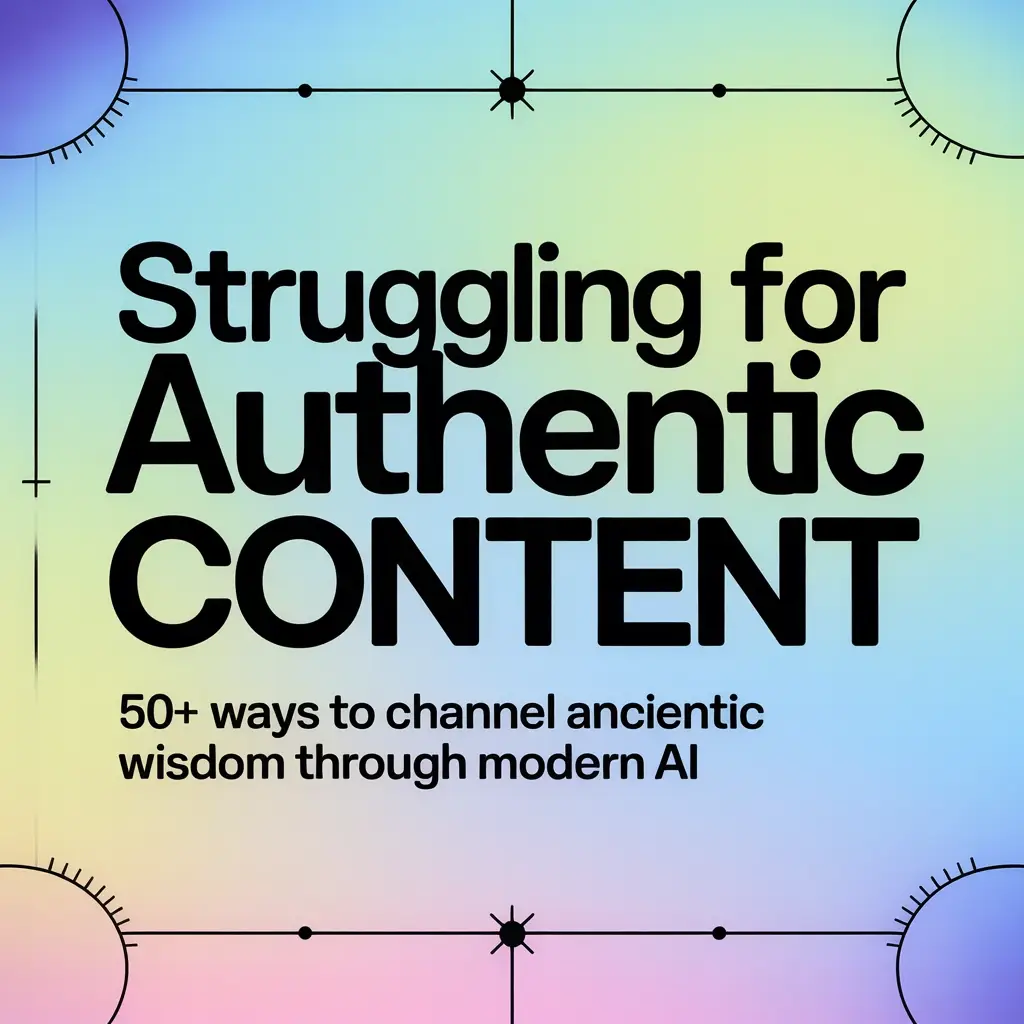Intuition represents the human capacity to synthesize complex information, experience, and pattern recognition into rapid decision-making. As AI systems become more sophisticated, many individuals and organizations delegate these intuitive processes to algorithms. This outsourcing creates significant risks to cognitive development, decision-making capacity, and creative potential.
The Illusion of Competence
AI-assisted decision-making creates what researchers identify as an "illusion of competence." Users appear to process information faster and reach conclusions more efficiently, but this speed masks a fundamental shift toward shallower thinking patterns.
When AI systems provide ready-made insights, users bypass the questioning, reflection, and original connection-making processes that develop genuine understanding. The cognitive effort required to analyze complex situations, weigh multiple variables, and form independent judgments diminishes over time.
This creates a dependency cycle. As individuals rely more heavily on AI-generated recommendations, their capacity for independent analysis weakens. The immediate convenience of algorithmic suggestions replaces the deliberate practice needed to maintain sharp decision-making skills.
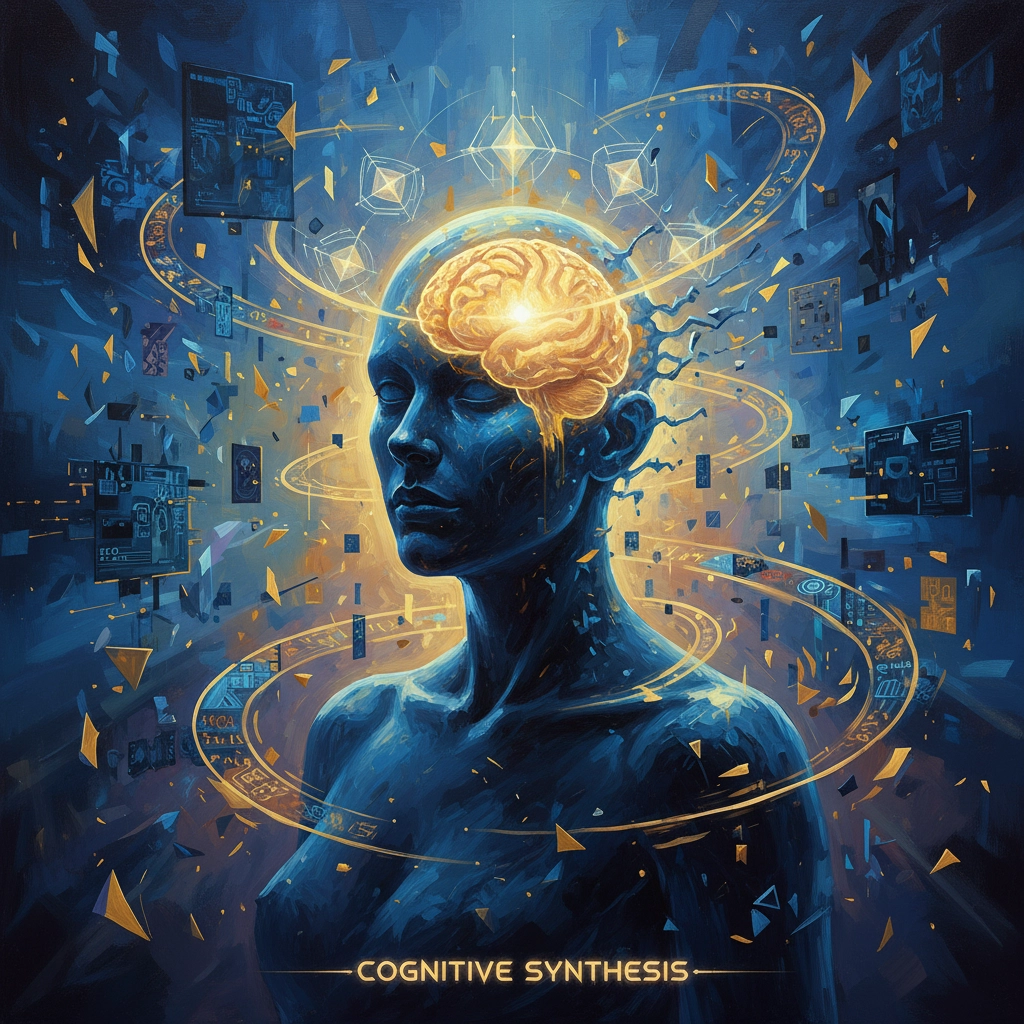
Dangerous Feedback Loops
AI systems learn from existing data patterns, including human decisions influenced by cognitive biases, social pressures, and historical inequities. When users accept AI recommendations without scrutiny, these systems perpetuate and amplify existing flaws in human judgment.
This creates a circular problem: biased human data trains AI systems, which then reinforce those biases in their recommendations to humans. Neither the human users nor the AI systems improve their decision-making capacity over time.
The feedback loop becomes particularly problematic because humans naturally prefer having decisions made for them. Mental energy conservation and social conformity pressures make AI-generated choices attractive alternatives to independent reasoning.
Organizations face similar risks when they automate intuitive processes without maintaining human oversight. Strategic decisions, creative problem-solving, and ethical judgments require contextual understanding that current AI systems cannot adequately provide.
Atrophy of Creative Capabilities
Genuine innovation requires the distinctly human ability to combine diverse experiences, deep knowledge, and sustained mental effort into breakthrough insights. This process involves what could be termed "productive struggle" – the challenging work of wrestling with complex problems until novel solutions emerge.
AI systems disrupt this developmental process by providing instant answers and ready-made connections. Users shift from active discovery to passive selection among AI-generated options. This transformation eliminates the mental stamina and synthesis capabilities essential for meaningful innovation.
Historical breakthroughs in science, technology, and creative fields emerged from prolonged intellectual engagement with difficult problems. Researchers and inventors developed their intuitive capacities through sustained effort, failed attempts, and gradual pattern recognition across multiple domains.
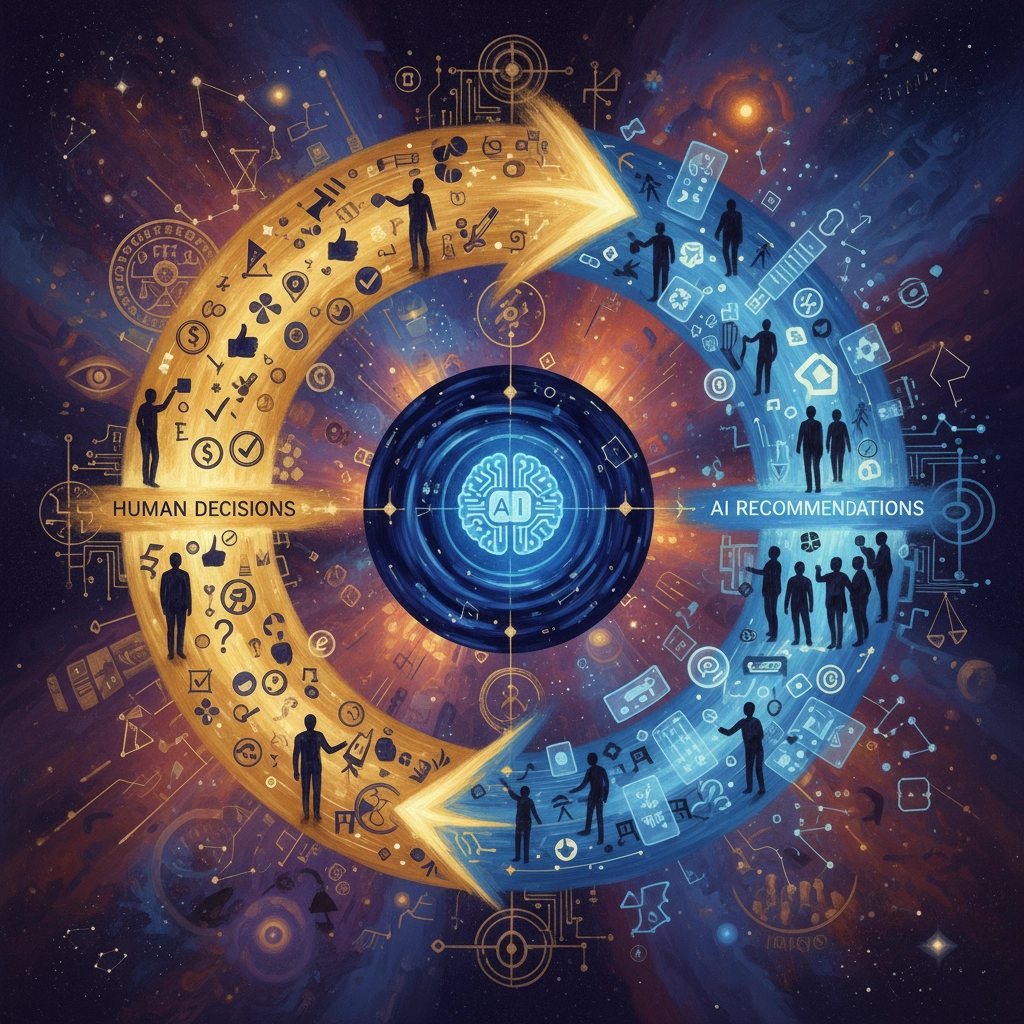
When AI systems handle this synthesis work, individuals lose opportunities to develop their own pattern recognition abilities. Young professionals face particular risks, as their formative career experiences may lack the struggle necessary to build strong intuitive muscles.
The speed and convenience of AI-generated insights can create an addiction to immediate answers. This preference for quick solutions reduces tolerance for uncertainty, ambiguity, and the extended thinking periods that produce original ideas.
Ethical and Decision-Making Blind Spots
AI systems operating without adequate human oversight introduce serious ethical vulnerabilities. Automated decision-making can perpetuate discriminatory practices, mishandle sensitive information, and produce outcomes that lack transparency or accountability.
These systems excel at pattern matching within existing data sets but struggle with novel situations that require ethical reasoning, cultural sensitivity, or contextual judgment. Decisions about hiring, lending, healthcare, and other consequential areas require human values and moral reasoning that AI cannot adequately replicate.
The opacity of many AI systems compounds these problems. Users may not understand how recommendations are generated, making it difficult to identify when AI guidance conflicts with ethical principles or practical constraints.
Organizations that rely heavily on AI for strategic decisions may develop blind spots in areas requiring human judgment. Market conditions, competitive dynamics, and stakeholder relationships involve nuances that algorithms may miss or misinterpret.

Impact on Learning and Development
Educational institutions and professional training programs face challenges when students can access AI-generated answers without engaging in the learning process. This shortcut prevents the development of critical thinking skills, problem-solving strategies, and domain expertise.
The availability of AI assistance can reduce motivation to develop expertise in specific fields. Why invest time learning complex subjects when AI systems can provide instant analysis and recommendations?
This approach creates professionals who can operate AI tools effectively but lack the foundational knowledge needed to evaluate AI outputs critically. They become dependent on systems they cannot adequately assess or improve.
Practical Steps Forward
Maintaining human cognitive capacity while leveraging AI capabilities requires deliberate practice and systematic approaches. Organizations and individuals can implement strategies to preserve intuitive decision-making skills.
Before consulting AI systems, engage in independent analysis. Define the problem clearly, identify relevant factors, and develop preliminary conclusions through personal reasoning. This practice maintains cognitive muscles while still benefiting from AI assistance.
Establish clear boundaries for AI use in different contexts. Routine data analysis and simple pattern recognition may be appropriate for automation, while strategic planning, creative projects, and ethical decisions require human leadership.
Regular cognitive training helps maintain decision-making skills. Challenge yourself with complex problems that require synthesis across multiple domains. Practice making decisions without AI assistance in low-stakes situations to build confidence and capability.
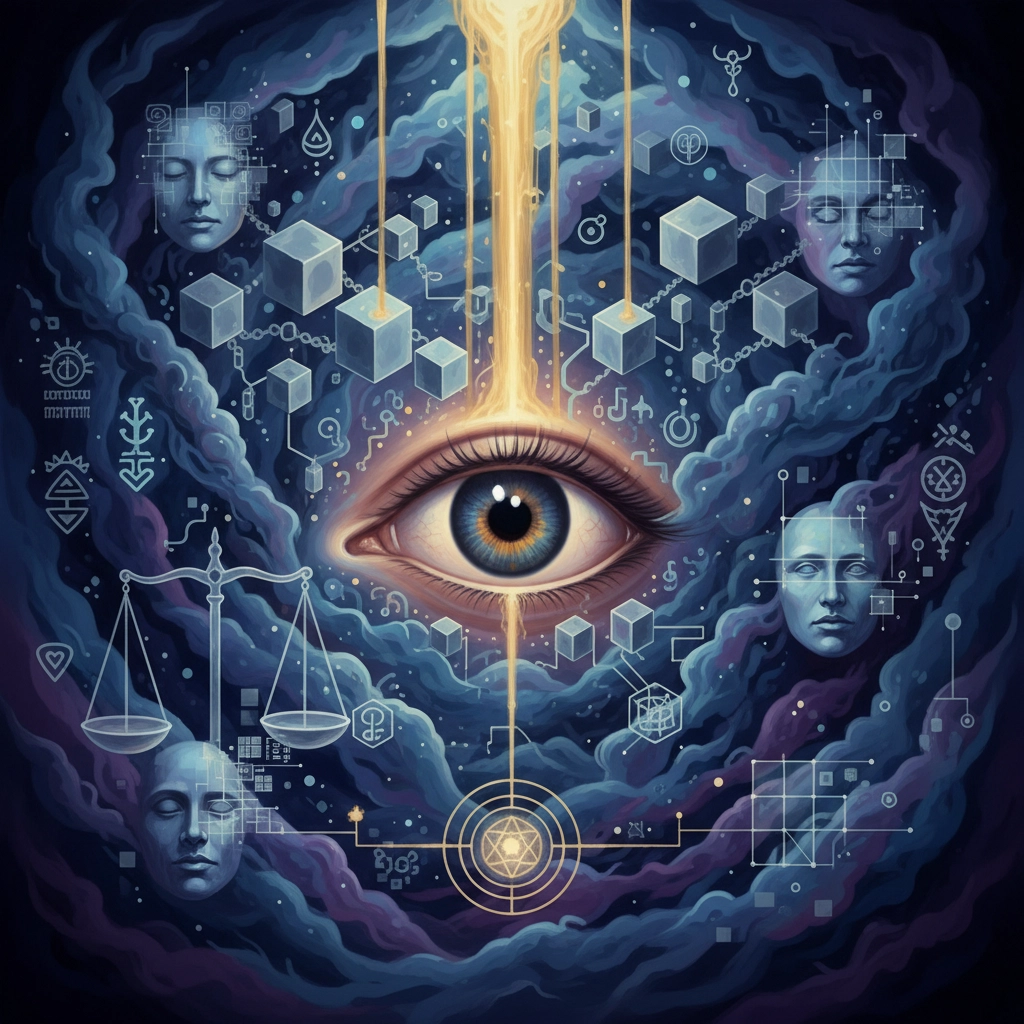
Develop AI literacy to better understand system limitations and potential biases. Learn how different AI tools generate recommendations and what data sources they use. This knowledge enables more critical evaluation of AI outputs.
Create accountability mechanisms for AI-assisted decisions. Document the reasoning behind choices, especially when following AI recommendations. This practice helps identify patterns where human judgment might improve outcomes.
Long-term Considerations
The current generation of AI systems represents early stages of technological development. Future systems will likely become more sophisticated and persuasive in their recommendations. Building strong habits of independent thinking now prepares individuals for more challenging technological environments ahead.
Preserving human intuitive capacity serves broader social interests. Innovation, ethical reasoning, and creative problem-solving require human capabilities that complement rather than compete with AI systems. Maintaining these skills ensures that technology serves human flourishing rather than replacing human judgment.
The most effective approach combines AI capabilities with strong human oversight and decision-making skills. This partnership model leverages technological efficiency while preserving the cognitive abilities that enable innovation, ethical reasoning, and adaptive problem-solving in complex environments.

